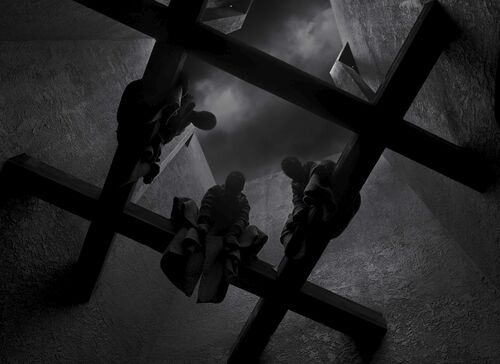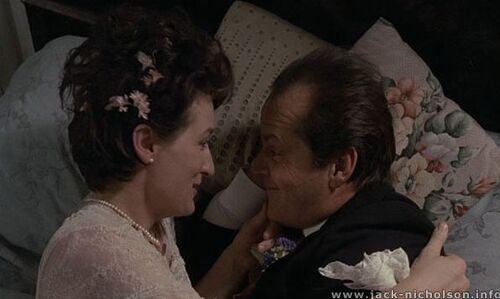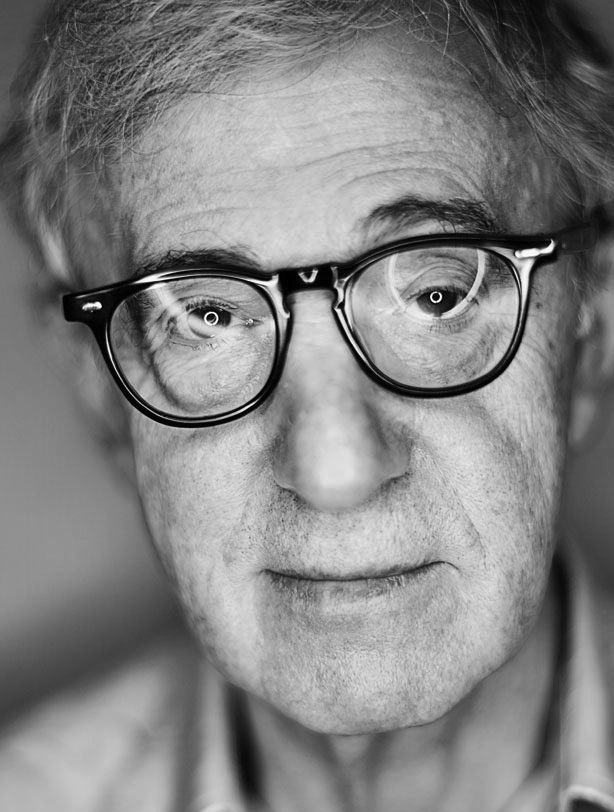
Woody Allen Retrospective: Annie Hall
 Annie Hall was the first film of Woody Allen's that I was ever exposed to. About seven years ago, I began to make my way through the Academy Award Best Picture winners. When I arrived at 1977, I had almost no prior knowledge of Woody Allen, as I had not started the deep dive into the pool of cinema I now swim in, so I came into the film with few expectations. I was absolutely blown away by Annie Hall, the artistry achieved in such a heartbreaking film completely floored me. I knew someday I would make a point to see everything else Woody Allen had made because that's how fast a project "happens" for me. It took longer than I would have liked, but I finally embarked on that retrospective project in July of this year. I had seen 11 of Woody Allen's films at the beginning of the project and discovered so many new favorites. Annie Hall was the only one of the 11 I rewatched, curious to see if it would remain at the top of my throne of Woody Allen's filmography. Annie Hall is still my favorite Woody Allen film, and one of my best-loved films of all time. It remains a rewatchable favorite, a film filled with personal touches and experimentation, a film that I am eternally grateful for.
Annie Hall was the first film of Woody Allen's that I was ever exposed to. About seven years ago, I began to make my way through the Academy Award Best Picture winners. When I arrived at 1977, I had almost no prior knowledge of Woody Allen, as I had not started the deep dive into the pool of cinema I now swim in, so I came into the film with few expectations. I was absolutely blown away by Annie Hall, the artistry achieved in such a heartbreaking film completely floored me. I knew someday I would make a point to see everything else Woody Allen had made because that's how fast a project "happens" for me. It took longer than I would have liked, but I finally embarked on that retrospective project in July of this year. I had seen 11 of Woody Allen's films at the beginning of the project and discovered so many new favorites. Annie Hall was the only one of the 11 I rewatched, curious to see if it would remain at the top of my throne of Woody Allen's filmography. Annie Hall is still my favorite Woody Allen film, and one of my best-loved films of all time. It remains a rewatchable favorite, a film filled with personal touches and experimentation, a film that I am eternally grateful for.
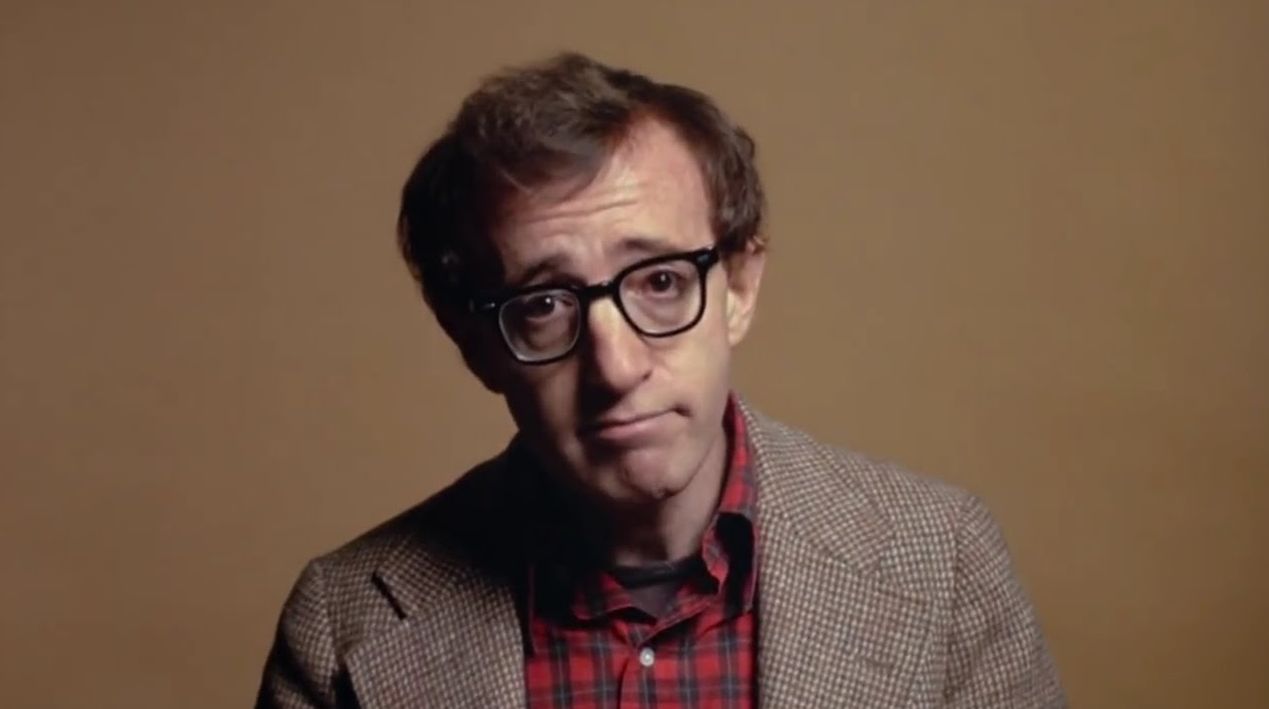
I am, unapologetically so, a big fan of Woody Allen's work. Annie Hall, directed by Allen in 1977, was one of the great masterworks of his career. Starring Woody Allen, and Diane Keaton in the titular role, Annie Hall presents the lives of socially awkward, incredibly neurotic individuals, who are perfect only for each other, from the beginning to the end of their relationship. Woody Allen always injects a bit of himself in each film he has directed, Annie Hall, however, may be the most self-actualizing of Allen's films that audiences have ever seen. Idiosyncracies and nuances commonly known to be those of Allen's himself, give the audiences an insight into one of the most famed directors of our time.
Alvy Singer (Woody Allen) has the only career he could possibly have, he is a comedian. Not that Alvy isn't intelligent, he is, or that he isn't capable of doing anything else, he would be, it's just that Alvy is an incredibly introspective and pensive individual who uses his own self-realizations to influence his comedy. At the beginning of the film, the audience learns that Alvy has broken up with the titular character and the succeeding film is his exploration of that relationship, in hopes to discover why it ended. Alvy is so stricken by the ending of his relationship with Annie because he truly believes that his 15+ years of psychological analysis has solved his problems which should have ensured his relationship with Annie would last. On the surface, the high-brow New Yorker Alvy, and the flighty midwestern-born Annie would have no success in a union, yet, their peculiarities were such that they ended up being perfect for each other, or so it seemed. Perhaps it's his much discussed Jewish guilt or just his introspective nature, but Alvy just can't let go of his relationship with Annie Hall until he has come to a logical reason for why it ended.
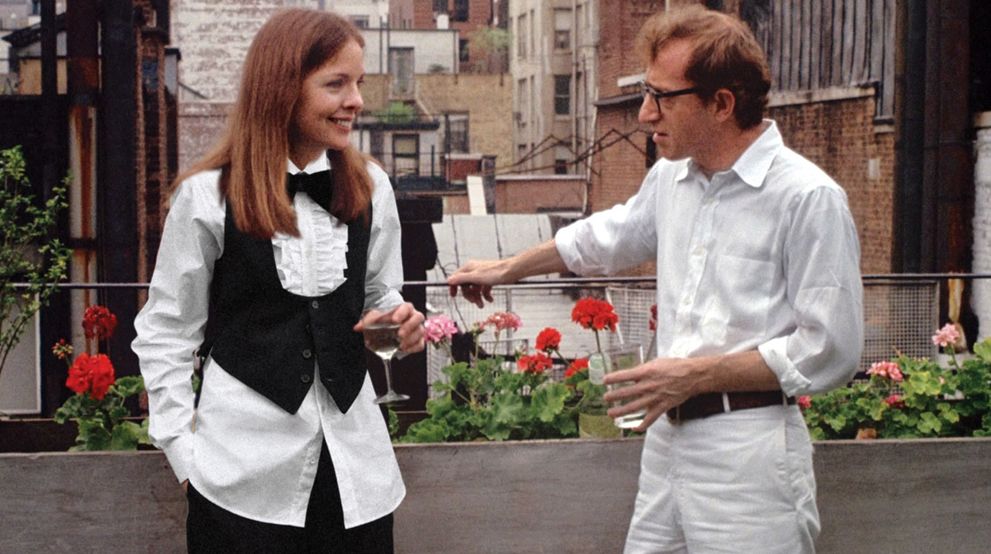
The introspective nature which Allen used as a vehicle for Annie Hall was brilliant and surely added to the host of reasons in which Annie Hall took Oscar's top prize for 1977. Annie Hall does something movies rarely get away with by breaking the 4th wall. Annie Hall breaks the wall so perfectly because the breaks add to the film, rather than take the audience away from the film. The technical aspects of this movie make it a dream to watch. The film is done almost exclusively using long takes, which are gutsy, but suited the conversational nature of Annie Hall to perfection. Another great technical attribute of mention is the title cards to input English on the "foreign language" scene on the roof. The script in which Allen penned in cooperation with Marshall Brickman was pure cinematic gold. One of my favorite scenes of all-time is captured within this film; the scene in which Alvy and Annie are in line at a movie theater and a guest behind them is loudly giving his sanctimonious opinion of the film in which they are about to see. Alvy is unable to hold his tongue any longer as the diatribe continues and he interrupts the gentleman to give his opinion, point out the flaws in his argument, and introduce him to the writer of the source material to further prove how wrong he was. This moment, though it happened only in Alvy's mind, was perfect, because who hasn't this happened to? Speaking of relatability, Alvy's character is one in which most everyone can relate to. Though probably not all of Alvy's mannerisms are present in one person at any given time, there are certainly many idiosyncrasies one can identify in themselves that is present on screen in Allen's Alvy.
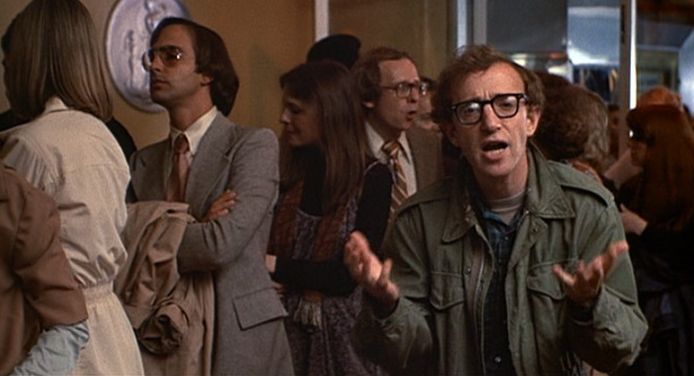
As noted, I am a huge fan of Woody Allen's work. His ability to pull the worst parts of himself and humanity from his own being and put it on screen for others to realize they also possess is extraordinary. I can't think of any other modern director who nails the human aspects in their films like Allen can. Everything about Annie Hall works, even the parts that shouldn't. The split-screens, the breaking of the wall, the "meeting the past" it all works the way Allen puts it together. Has there ever been any criticism of this film? I'm sure there has been, I'm just not aware of it. It is for good reason Annie Hall won Best Picture, Best Director, a Best Actor nod for Allen, and Best Original Screenplay; and one doesn't even have to be a fan of Allen's work in order to appreciate his master work, Annie Hall.
